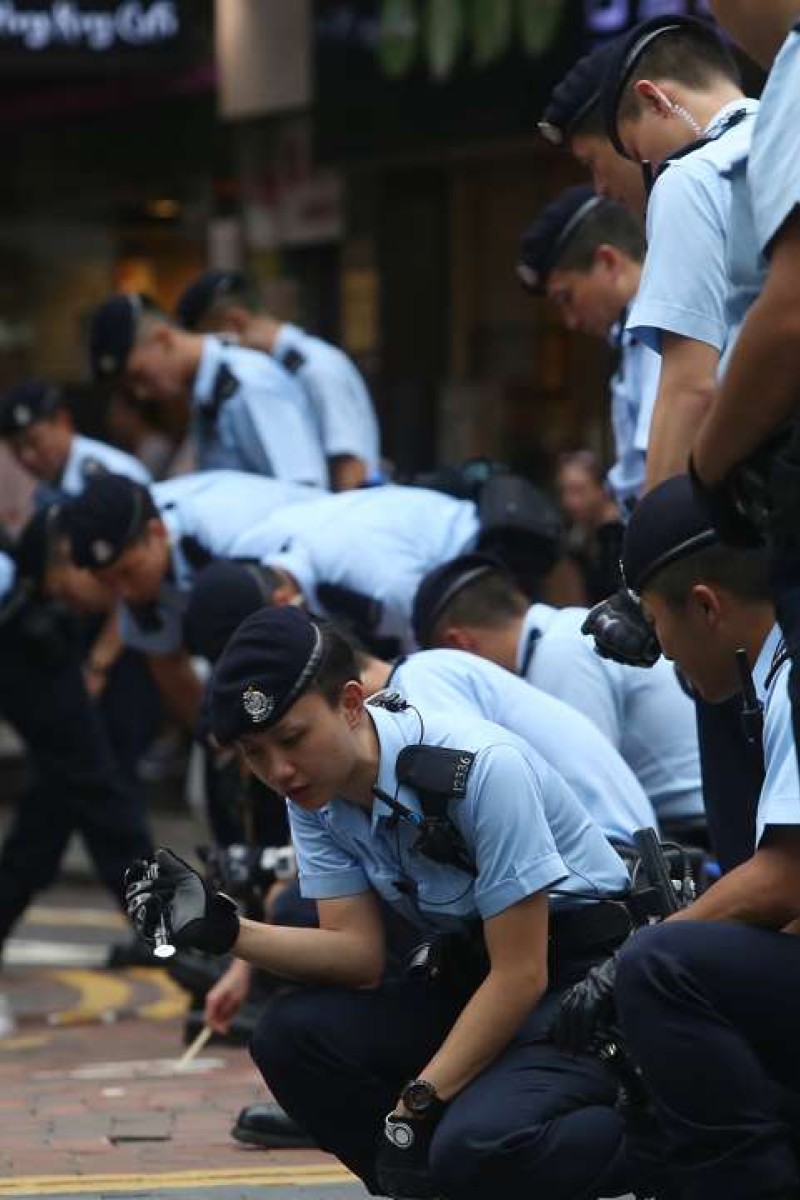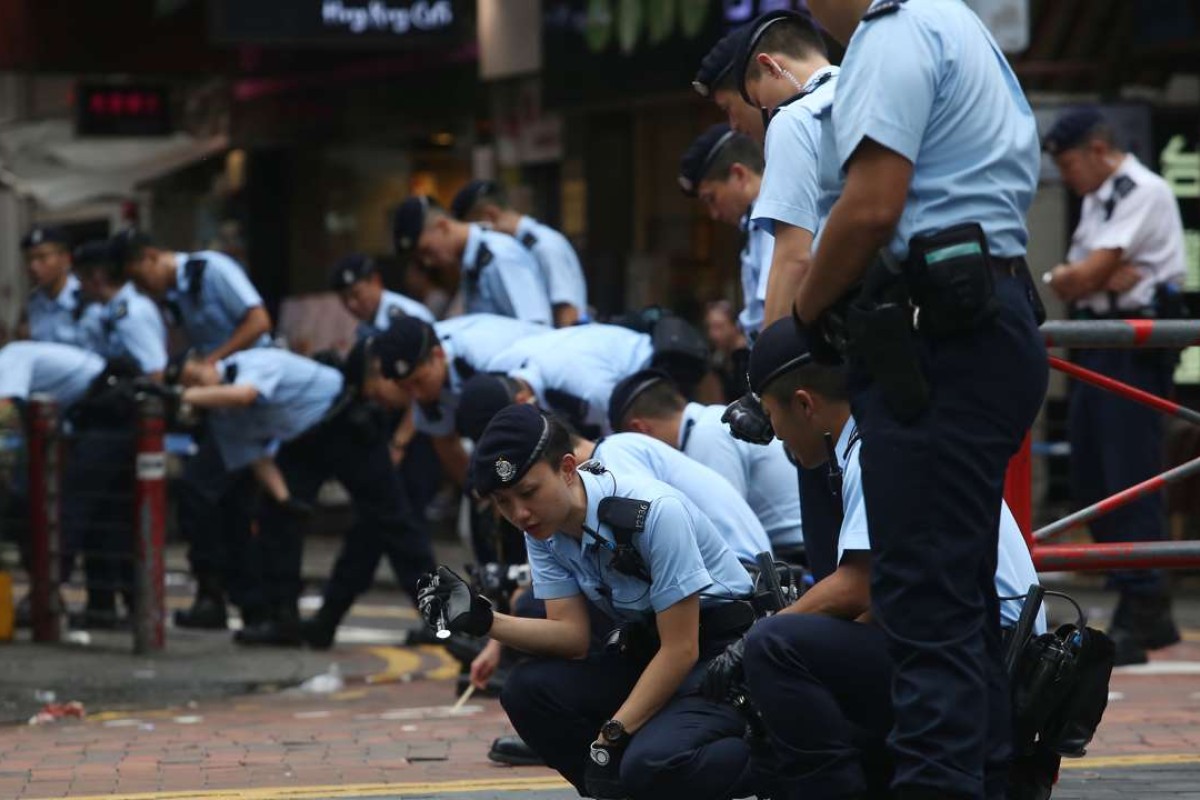
There are fears for young Nepali people, but some think there are larger issues at play, such as a lack of education and job opportunities
 Police officers investigate Parkes Street, in Yau Ma Tei, where Sunday’s shooting took place.
Police officers investigate Parkes Street, in Yau Ma Tei, where Sunday’s shooting took place.A lack of education and job opportunities for Nepali people have made the Nepali community feel marginalised and gave rise to the violent behaviour on Sunday, said a young Nepali student yesterday.
An 18-year-old university student, who asked to remain anonymous, said the gang violence – which saw police open fire and injure two men in Yau Ma Tei on Sunday – underlined the larger problems that Nepali people in the city were facing.
“It’s hard for Nepali people to find jobs in the city because they can’t speak Chinese. They also don’t have university qualifications, which means they struggle to find well-paid jobs. Adults usually leave their children alone at home when they go to work. As a result, children risk mixing with gangs,” she said.
She added the education system was another problem.
“For many Nepalis, the Chinese curriculum is just too hard. A lot of them drop out of school. This puts them at risk of mixing with gangs.”
There were already some Nepali gangs causing trouble in the city and making some areas unsafe, said the university student.
“The gang violence on Sunday only made things worse. It gives our entire community a bad name. I’m sure there’ll be more discrimination against us because of it,” she said.
But Thapa Sumiran, 17, who was born in Hong Kong and has taken a gap year after sitting his DSEs this year, said the gang violence was an isolated case, and would not affect how Nepalis were viewed in the city. “Social organisations, such as Nepalese Parents and Children’s Club, have been making effort on improving parent-child relationship. We hope those efforts will improve social harmony,” he said.
The Dashain festival, which was celebrated at the weekend, has been listed as a possible reason for the violence. Because of the festival, youngsters could have been left on their own, said the chairwoman of the Hong Kong Nepalese Federation, Rita Gurung.